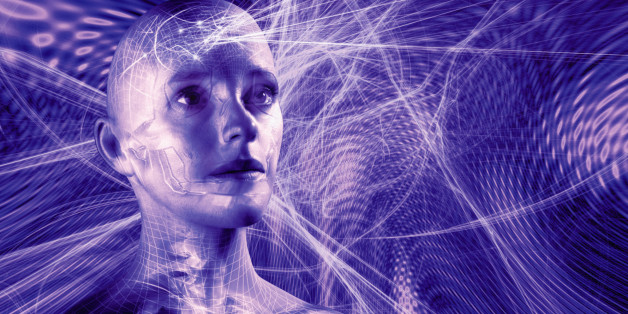When Computers and Biology Converge, Organisms Become Algorithms
On May 11, 2016, the Berggruen Philosophy and Culture Center invited Yuval Noah Harari, a professor of history at Hebrew University of Jerusalem and author of the international bestseller “Sapiens: A Brief History of Humankind,” to deliver a talk on “The New Inequalities” at Tsinghua University in Beijing. Prior to the talk, Harari was interviewed by BPPC director Daniel A. Bell. This is an edited transcript of the interview.
You argue in your book that material progress, for example in the agriculture revolution and industrial capitalism doesn’t necessarily contribute to human happiness. In fact, it may lead to the opposite. Can you elaborate on that?
Until the middle of the 19th century there was a complete lack of correlation between material progress and the well-being of individual humans. For thousands of years until about 1850 you see humans accumulating more and more power by the invention of new technologies and by new systems of organization in the economy and in politics, but you don’t see any real improvement in the well-being of the average person. If you are the emperor of China, then obviously you’re much better off. But if you’re an average Chinese peasant in 1850, it’s very, very hard to say that your life is any better than the life of hunter-gatherers in the Yangtze Valley 20,000 years ago. You work much harder than them, your diet is worse, you suffer far more from infectious diseases, and you suffer far more from social inequality and economic exploitation.
‘For the first time in history, more people die from eating too much than from eating too little.’
In the last 150 years, for the first time in history, the daily life and the well-being of the average person finally started to improve in quantifiable ways. For example, there was a sharp reduction in child mortality, a reduction in violence, and in famine. Today, for the first time in history, more people die from eating too much than from eating too little. So finally you see some juncture between material progress and human happiness.
At the same time, however, you also see reverse phenomena, for example, the disintegration of human communities and families. Homo sapiens is a social being, and our well-being depends to a large extent on the quality and depth of our social and family relations — and in the last 200 years they have been disintegrating.
So let me just ask you about the conception of well-being that underlies your judgments. You do criticize this idea of individual happiness as just feeling good. There’s a much more kind of communitarian view that well-being depends on rich social relations with family and community — is that fair to say?
Definitely. This is part of human well-being. But even if you just look at individual human feelings, whether I feel satisfied or not, then throughout history, including in the last 200 years, even when objective material conditions improve, people don’t necessarily feel more satisfied because their expectations change. Maybe you enjoy greater prosperity in objective terms, but if you expect more then you might be as dissatisfied as before. Take, for example, the Arab Spring revolutions. Objective material conditions in Egypt under Hosni Mubarak were much better than ever before. There was less chance of dying from starvation, from violence or from epidemics under Mubarak than under any previous regime in Egyptian history. Nevertheless, people were very dissatisfied and they made a revolution. And now they’re also dissatisfied with the outcome of the revolution, because they expect far more than their ancestors in ancient Egypt.
Is there a kind of Buddhist view in your book — that the ultimate source of human happiness is when we strip ourselves of desires?
There is indeed an influence of a Buddhist worldview. Buddhism maintains that the common reaction of the human mind to pleasure and to achievement is not satisfaction; it’s craving for more. The same view is upheld by current biological theories. Modern biologists agree that because of our evolutionary background, our basic reaction to achievement is not satisfaction, it’s craving for more. This is what fuels the march of history: humankind gains more and more power but you never see humans becoming satisfied.
‘The basic reaction of the human mind to pleasure and to achievement is not satisfaction; it’s the craving for more.’
This craving for more also means that some people who are will crave a form of immortality. Now we see that wealthy people in the future might use biotechnology to prolong their lives, and you’re worried that that’s going to lead to an increase in inequality between those that have wealth and power and the rest. I spent the last term in Silicon Valley in Stanford, and I saw a bit of that: these very wealthy, brilliant and beautiful people are craving for immortality and designing technologies that will help them achieve that. But that might be very scary for the rest of us. So what can be done to stop that from happening?
You cannot just stop the march of technology. People are starting to dream about overcoming old age and death because it is becoming technically feasible. A hundred years ago or a thousand years ago, this would have sounded like childish fantasy. But now with the recent breakthroughs in biotechnology, it no longer sounds so childish. Science is telling us that the reason people die is not because some God said so or because the laws of nature mandate it. People always die because of technical problems. And every technical problem has in principle a technical solution. And science is looking for these technical solutions. Most scientists engaged in this enterprise won’t say, “Yes, we’re trying to overcome death.” You hear people in Silicon Valley saying that, but most doctors are too afraid to come out and admit it openly. They only say, “Oh, I try to overcome cancer, and he’s trying to overcome AIDS, and she’s trying to overcome Alzheimer’s.” But if you connect all the dots it’s obvious that science is now engaged in an attempt to overcome old age and death. And, as you said, besides positive potential, it also has very scary potential.
But why can’t the government regulate it so as to encourage the positive potential and discourage the negative potential?
Certainly I think there is much greater scope for government regulations, especially once more people realize what’s going on. Now it’s just a Silicon Valley phenomenon, or some billionaires in Russia or China. They begin to think that immortality is within reach. I think in 10, 20 years it will become common understanding of greater and greater parts of society and then the real political struggle will begin, because the question of old age and death will stop being a merely scientific or medical issue — it will become a very central political issue.
‘The question of old age and death will stop being a merely scientific or medical issue, it will become a very central political issue.’
But it’s a big question to what extent any political system in existence today is capable of handling the repercussions of breakthrough technologies like biotechnology and artificial intelligence. Throughout history there has always been a delicate balance between technology and politics. In different technological environments, different economic and political systems emerged. Thus the Industrial Revolution destroyed all previous political systems. You couldn’t govern an industrial power like Germany or Japan the same way that you governed an agrarian medieval kingdom. We have inherited our current political systems, whether communism or liberal democracy, from the Industrial Revolution. And I don’t think that either of them can survive the completely different realities of biotechnology and artificial intelligence.
Let me ask you a little bit about China since we’re here. There’s a lot of scientific people at the top who can make more scientifically informed decisions on some issues like artificial intelligence. Quite clearly, any artificial intelligence, that threatens our survival as a human species is bad and should be regulated. I’m not sure that the U.S. system can do it, they just give free reign to those Silicon Valley people, but maybe in China there’s greater hope, that the scientifically-informed leaders can regulate those bad forms of technology.
It’s true that the way things look now, China is in a better position to regulate such things than the U.S.. If you have a very centralized decision making process, then you have the advantage that you can decide to regulate something, and your decision will come into effect. The danger is that if you make the wrong decision then there are no checks and balances, and hence if you get it wrong then you get it horribly wrong. In a system where decision making is more distributed, then an error in one place is less catastrophic than in a central system.
So maybe an ideal form of government is one where there is a lot of scientifically-informed decision making at the top but with mechanisms for accountability. Final question: If you had to pick one idea that will be most influential in the next 50 years, what would it be?
‘The wall between machines and humans, between computer science and biology, is collapsing and I think the next century and probably the future of life itself will be shaped by this algorithmic view of the world.’
For the next 50 years, it’s definitely the algorithm. The whole of science is converging on this master idea of processing data in an algorithmic way, and this will cause the whole of economics and politics to converge on the same idea. The whole of biology since Darwin can be summarized in three words: “Organisms are algorithms.” Simultaneously, computer scientists have been learning how to create better and better electronic algorithms. Now these two waves — the one coming from biology and the other coming from computer science — are merging around this master concept of the algorithm, and their merger will create a tsunami that will wash everything in its way. The basic insight which unites the biological with the electronic is that bodies and brains are also algorithms. Hence the wall between machines and humans, between computer science and biology, is collapsing and I think the next century and probably the future of life itself will be shaped by this algorithmic view of the world.
We should think very hard about it and we should regulate it and we don’t have enough time. I don’t know much about the Chinese government in this respect, but certainly in Israel, and from what I see in the western world in general, the governments are pretty much oblivious to the danger, and they are not doing anything remotely enough about this issue. I don’t think you can completely stop it because the the basic scientific insight of the 21st century is that organisms are algorithms and that we can write algorithms artificially. This is not a genie you can put back in the bottle. But technology’s not deterministic. There is no determinism about where this idea would lead us in the coming decades, so we should aim not just to regulate but to somehow guide this tsunami in a better and wiser direction.



